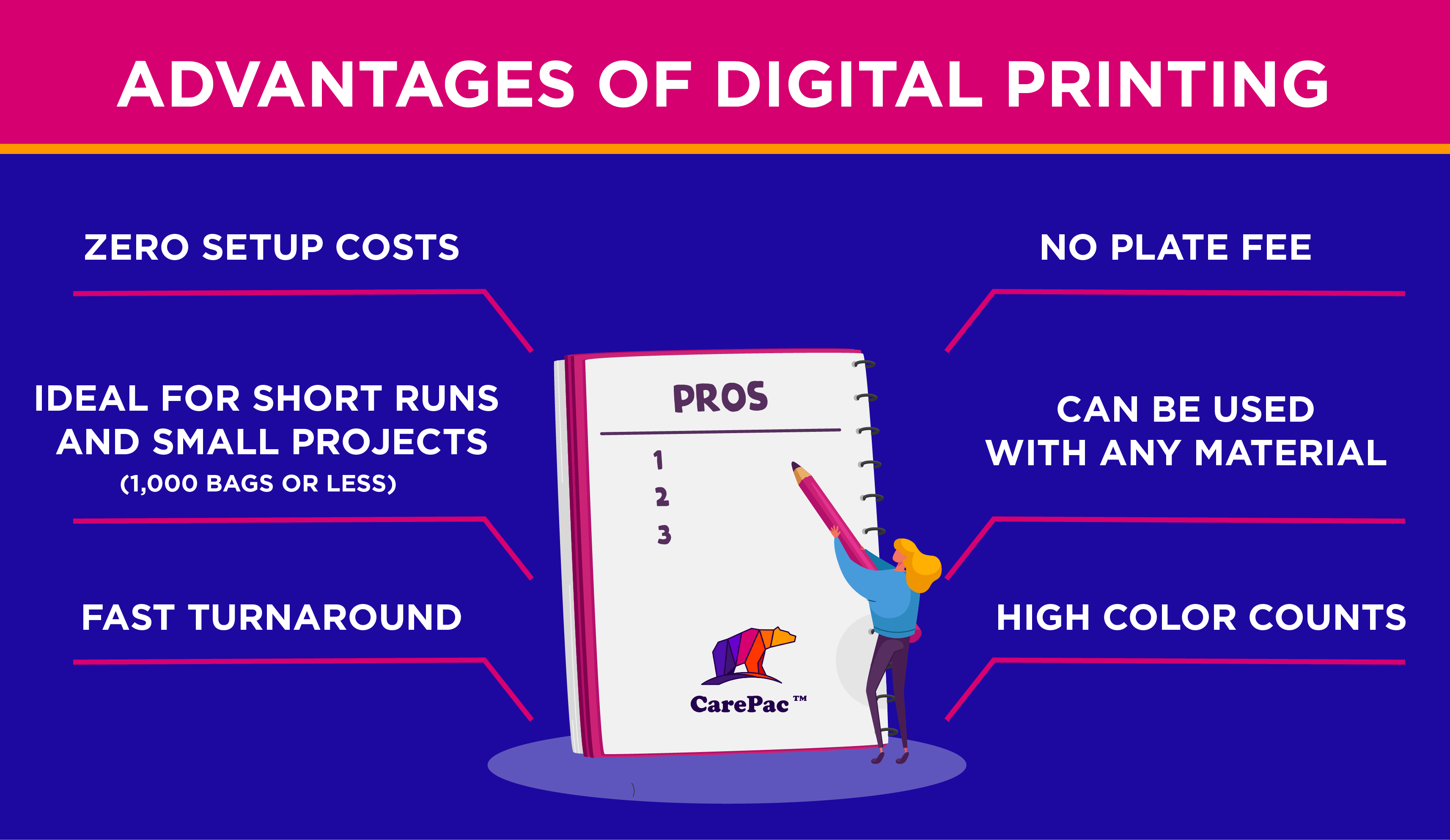Getting The Digital Printing To Work
Getting The Digital Printing To Work
Blog Article
Our Digital Printing PDFs
Table of ContentsThe Best Strategy To Use For Digital PrintingHow Digital Printing can Save You Time, Stress, and Money.Unknown Facts About Digital Printing3 Simple Techniques For Digital PrintingThe Main Principles Of Digital Printing Digital Printing for Beginners
Variable information printing, such as direct mail with customized codes and addresses, is preferably suited for electronic printing. Digital quick printing only needs 4 actions of design, review, printing and binding to get every little thing done. Digital quick printing has an unequaled benefit: print on demand.According to PMMI, electronic printing allows brands and producers to respond swiftly to consumer demands while boosting the supply chain, lowering warehousing cost and waste, and appreciating faster time to market. That all sounds fantastic, but exactly how does this technology do all that? The major differentiator of these modern technologies is that there are no set up fees and no plates with digital printing.
Not known Factual Statements About Digital Printing
According to Wikipedia, the greatest distinction in between electronic printing and conventional techniques such as lithography, flexography, gravure, or letterpress - Digital Printing is that there is no demand to change printing plates in digital printing, whereas in these analog printing approaches the plates are repetitively replaced. This causes quicker turn-around time and reduces price when utilizing digital printing.
Digital printing is extremely adaptable, so it's easy to make modifications to the plan layout swiftly. It all goes back to the plates.
With standard printing methods, short-run printing is just not feasible. Due to the fact that a great design can make or break your item, electronic printing continually produces high-grade, clear and colorful graphics each time.
Digital printing is the procedure of printing digital-based photos straight onto a range of media substratums. There is no requirement for a printing plate, unlike with offset printing. Digital documents such as PDFs or desktop posting documents can be sent straight to the digital printing machine to print theoretically, photo paper, canvas, material, synthetics, cardstock and various other substrates.
Digital Printing - Questions
According to PMMI, electronic printing enables brand names and suppliers to respond quickly to customer demands while improving the supply chain, reducing warehousing cost and waste, and appreciating faster time to market. That all audios terrific, however just how does this technology do all that? The major differentiator of these innovations is that there are no set up charges and no plates with digital printing.
This results in quicker turnaround time and reduces cost when making use of electronic visit our website printing.

10 Easy Facts About Digital Printing Explained
With conventional printing techniques, short-run printing is just not feasible. Due to the fact that a great layout can make or damage your item, electronic printing consistently creates high-grade, clear and colorful graphics each time.

According to PMMI, electronic printing allows brands and makers to react quickly to client demands while enhancing the supply chain, lowering warehousing expense and waste, and delighting in faster time to market. That all sounds fantastic, however exactly how does this modern technology do all that? The major differentiator of these technologies is that there are no set up charges and no plates with electronic printing.
Getting The Digital Printing To Work
According to Wikipedia, the biggest official website distinction between electronic printing and conventional techniques such as lithography, flexography, gravure, or letterpress is that there is look at this website no need to replace printing plates in electronic printing, whereas in these analog printing approaches home plates are repeatedly changed. This results in quicker turnaround time and reduces price when making use of digital printing.
Digital printing is very versatile, so it's easy to make modifications to the package layout rapidly. It all goes back to the plates.

Rumored Buzz on Digital Printing
Digital printing is the process of printing digital-based pictures directly onto a selection of media substratums. There is no demand for a printing plate, unlike with countered printing. Digital files such as PDFs or desktop computer publishing data can be sent out straight to the digital printing press to print on paper, picture paper, canvas, textile, synthetics, cardstock and other substrates.
Report this page